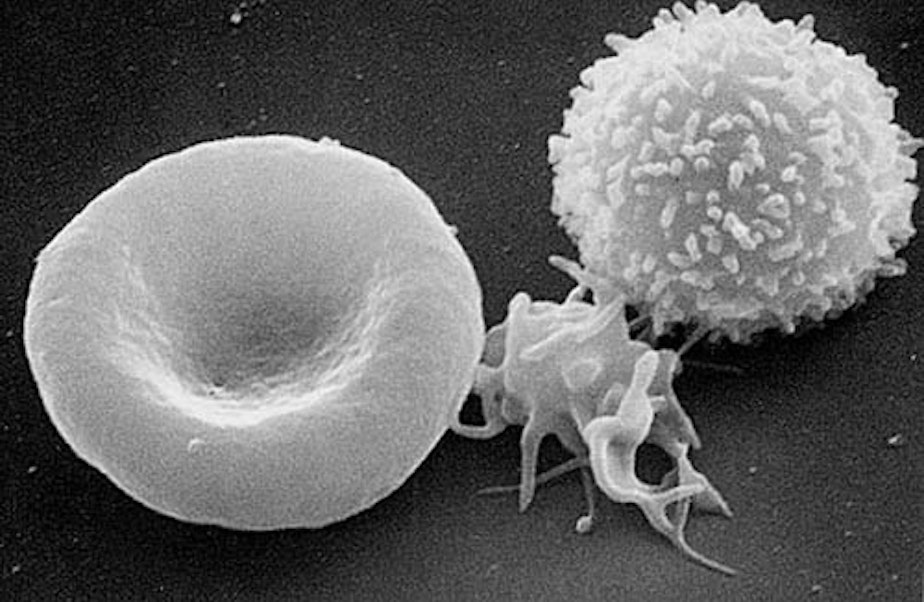Seattle Scientists Identify Cells That Could Lead To Herpes Vaccine

Scientists at Seattle’s Fred Hutchinson Cancer Research Center have found a class of cells they think suppresses herpes. This could explain why some people have no symptoms or lesions when the virus is reactivated. It also changes the way scientists understand how the virus works.
HSV2 is the virus that causes genital herpes. It lives in the nerves that stem from the spinal canal. The thinking is that the virus hangs out there. Once in a while, when the virus reawakens, a group of these nerves called the ganglion controls how the body responds to the virus.
Dr. Larry Corey is director of Fred Hutchinson Cancer Research Center. He’s also a virologist and studies herpes infections. “When I used to lecture about herpes, I’d say it’s sitting on ganglion sipping a Coors,” he says. “Once in a while it would reactivate and come back down, at most once a month. When it came down it would cause a lesion.”
Corey co-authored a study that sheds new light on HSV2, published May 8 in the journal, Nature. Corey says the findings show that the virus isn’t sipping a Coors and coming off vacation every so often. Instead, it’s ready to go most of the time. So that means the control is not happening in the ganglion, but in the skin where the lesions show up. That’s where a class of immune cells, called CD8 T cells, lives. Corey says these are the cells that are actually responsible for controlling the virus. The body uses these cells to prevent outbreaks. “They’re making substances that prevent them from migrating out of the skin; they actually make substances that say, stay put, be here, don’t move.”
Corey says since the body knows how to deal with the virus, the next step is to find a way to boost the cell’s defense, either by increasing their numbers, or making them more active. “Now I’m a lot more optimistic about developing vaccines for genital herpes,” he says. “We know the body can contain it, so now we just need to help it.”
Sponsored
About three quarters of a million people in the US are diagnosed with genital herpes each year.
Dr. Matthew Golden is director of the Seattle-King County Public Health’s STD program. He says HSV2 can be a gateway to other infections. “People who have HSV2 are at elevated risk for acquiring HIV infection if they’re exposed to HIV. And I think in many parts of the world this is an important co-factor in that sense.”
There’s no cure for herpes, but there are antiviral treatments. Dr. Golden says some people with herpes take medications every day to cut the risk of transmitting the virus to their sex partners. Condoms are also very effective in preventing transmission.

